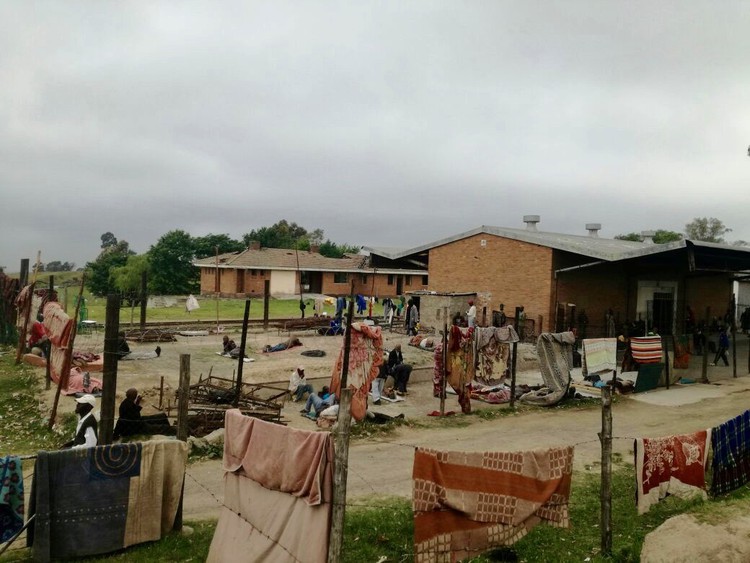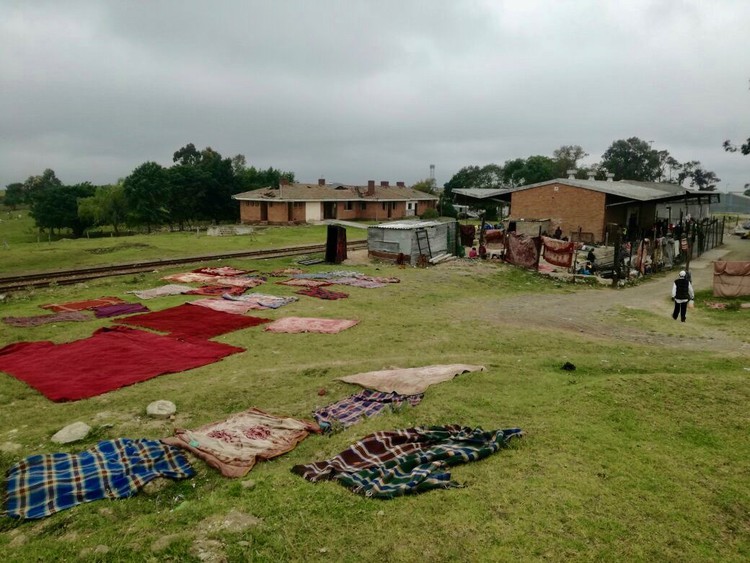Health department wants to close informal facility for destitute people
Khululabantu Bam centre in Butterworth described as “not appropriate” for mentally ill
The Eastern Cape Department of Health is trying to close the informal Khululabantu Bam centre in Ndabakazi village, outside Butterworth.
A spokesperson for the department, Sizwe Kupelo, said, “We have been trying to have it closed but it needs other departments [to assist]. We’ve appealed to the municipality.”
“However, we send doctors to assess [the residents] from time to time but it’s not our facility and we want it closed,” he said.
He said the centre is not appropriate for housing 100 people, some of them mentally ill. He did not elaborate further.
The centre operates out of an old railway goods shed in Ndabakazi. It was started in January 2016 by Sandile Sese Stali and his wife Nonikile.
Stali said the residents were homeless people he had found on the streets of Butterworth, Mthatha, East London, King William’s Town and Port Elizabeth. He provides them with a wash, food and new clothes, and takes them to hospital for a check-up. He then informs the police of their names in case relatives are looking for them.
He said police and social workers sometimes refer mentally ill people to him. Some of the people were also sent to him for care by their families. He charges these families R1,500 a month. Most of the 50 residents are men. Stali said some of them are substance abusers. He says most stay for six months before returning to their families.
Stali said he grew up without his mother and was raised by family members, some of whom ill treated him. “I was very close to becoming a street kid myself. I almost ended up eating out of dustbins,” he said
Most of the residents don’t have money, nor do their families pay Stali. He therefore uses income from a motor spare shop he owns to subsidise the facility.
There are three security guards, four women who assist with cooking and cleaning, and an assistant to take patients to the clinic and give them their medication. They all receive a R1,000 a month stipend.
Stali said he receives no financial support from Mnquma Local Municipality. He said the Department of Social Development sent food parcels but only when he first started.

When GroundUp visited on a Monday, most residents were sitting outside waiting for lunch. Women were busy cooking soup and preparing bread. Blankets were hanging outside in the sun. Stali showed the two rooms inside the hall used by the residents.
He said he lacks beds. In one rooms there were six beds made of planks. Stali said some people sleep on the floor. Those sent by their families have mattresses and blankets.
“I’m not doing this because I want to have money. I’m doing this because I know how it is not to be loved,” he said.
“I was raised by so many people. I kept on changing houses because some family members were abusive towards me,” said Stali.
“All I want is to see our people being taken care of in a warm home with food and a place to sleep. I’m not going to wait for government. I will find ways to raise the money to build the centre.” He said local chiefs had identified land for him to build a centre. He had also spoken to NGOs for assistance.
Johnnie Sampson who volunteers as a security guard said, “Stali found me on the road. I was hungry and tired. He gave me a place to sleep and food. I stayed here and decided to help him.”
He said his job is to keep patients inside the centre, assist those who cannot wash themselves or cut their hair, and take people to the clinic.
Sipho Vonco, who is 21, said he used to do piecemeal work around Ndabakazi. “I get food here and treatment for my painful leg. I’ve been here for two weeks and I’m planning to stay longer because Mr Stali promised to help me apply for an ID, something my parents failed to do when they left me,” he said.
Siseko Hlalempini, who is 19, said he was a drug user. “When my family sent me here, I didn’t understand, but I’m grateful because I have received help.”
“During the day we assist with house chores because they always tell us that we need to live in a clean place and take care of a place we are living at,” said Hlalempini. “Here we get time to think about our future and what we want. I have decided to go back to school to finish my grade 11. On holidays I will come volunteer here at the centre.”
© 2017 GroundUp. 
This article is licensed under a Creative Commons Attribution-NoDerivatives 4.0 International License.
You may republish this article, so long as you credit the authors and GroundUp, and do not change the text. Please include a link back to the original article.



